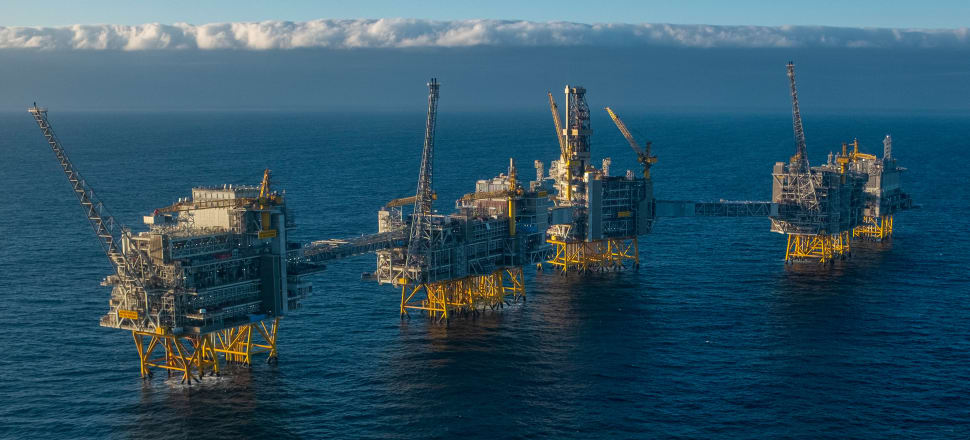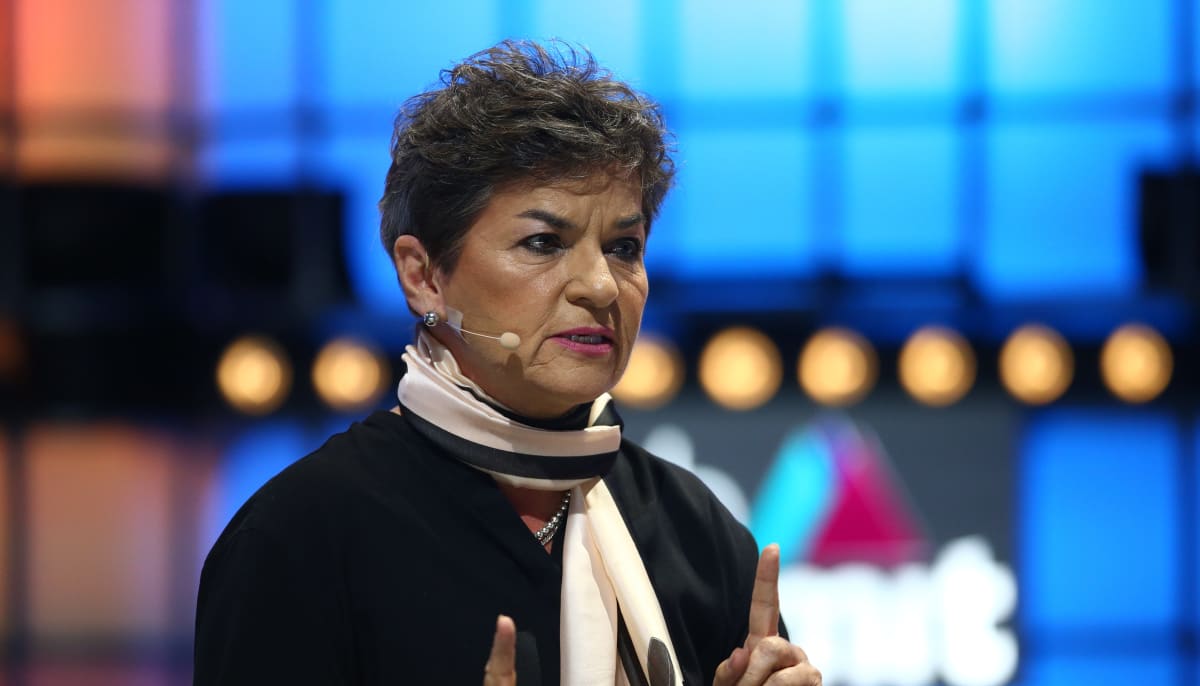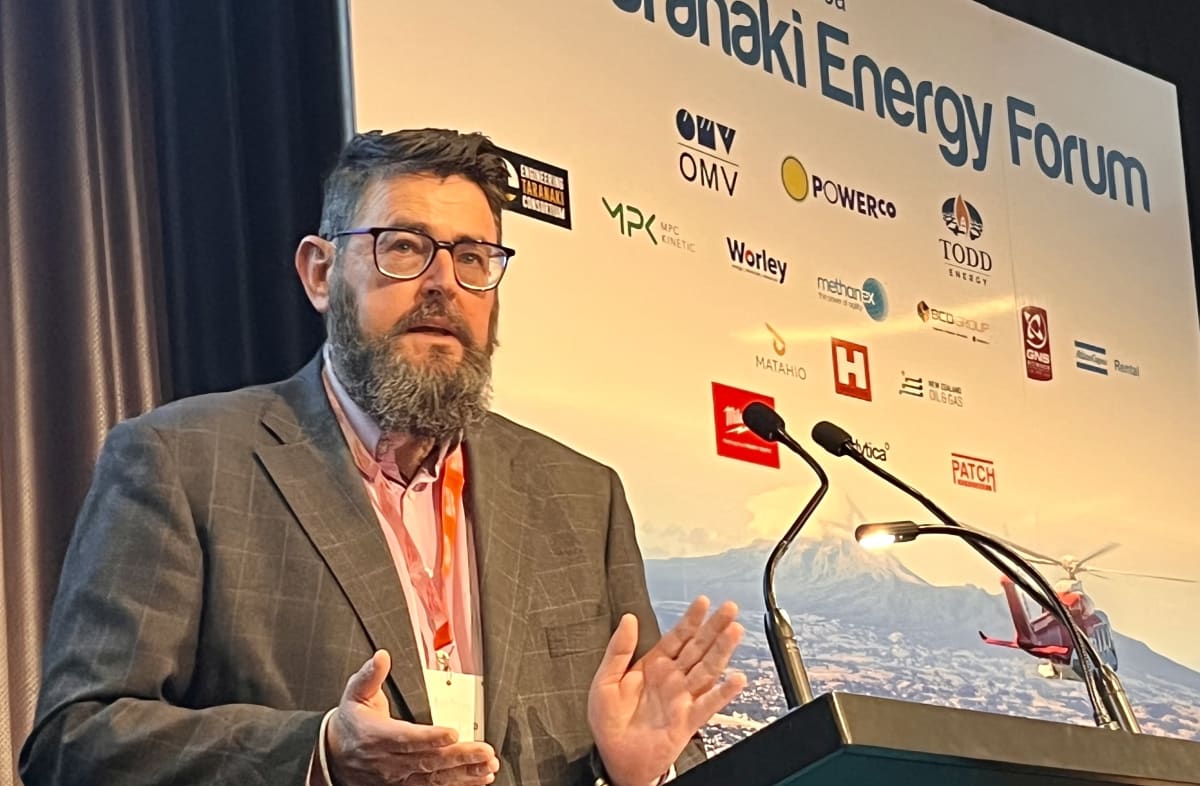
When Costa Rican diplomat Christiana Figueres says she no longer believes the oil and gas industry will do the right thing around climate change, it’s a big deal, including in New Zealand. Ditto when Al Gore says the same thing.
Over the last couple of weeks, in separate high-profile forums, Christiana Figueres and Al Gore have railed loudly and publicly against the fossil fuel sector for not only failing to decarbonise, but for actually moving in the opposite direction.
“I thought fossil fuel firms could change. I was wrong,” says Figueres in a hard-hitting article for Al Jazeera. “I have for years held space for the oil and gas industry to finally wake up and stand up to its critical responsibility in history. But what the industry is doing with its unprecedented profits over the past 12 months has changed my mind.”
READ MORE: * Miners feel put upon by biodiversity rules * Hipkins' energy policies are music to the ears of multinationals
What Figueres says matters, says leading NZ climate scientist and Victoria University professor, James Renwick.
“She was, in my opinion, the individual most responsible for the 2015 Paris Agreement. She still has a great mana.” Until now, she also had optimism.
"Do you take us as fools?"
She is not alone in her new-found disillusionment. One week after Figueres spoke out, former US vice president-turned-environmental-activist Al Gore called the fossil fuel industry’s fight against renewable energy – and the global financing which supports that fight – the number one obstacles for climate solutions.
“Do you take us as fools?” he asked.

Fossil fuel companies have reaped windfall profits over the last year from the spike in oil prices brought about by he Russian invasion of Ukraine. But instead of spending those profits on investment into renewable energies and cleaning up fossil fuel use, international oil giants like BP, ExxonMobil and Shell have been reversing commitments to – and financing of – emissions reduction.
Shell announced last month it had abandoned plans to cut oil production between now and the end of the decade, joining BP and Total in climate u-turns. Instead, the company will invest $40bn in oil and gas production between 2023 and 2035, hugely more than the $10bn and $15bn it will spend on “low-carbon” products.
As The Guardian pointed out, the International Energy Agency, a respected global energy watchdog, has said development of new oil and gas fields has to stop immediately to meet the goal of global net zero carbon emissions by 2050 and avoid climate breakdown.
No wonder Figueres is furious.
“What we see is international oil companies cutting back, slowing down or, at best, painfully maintaining their decarbonisation commitments, paying higher dividends to shareholders, buying back more shares and – in some countries – lobbying governments to reverse clean energy policies while paying lip service to change,” she says.

“On top of that, the industry as a whole is making plans to explore new sources of polluting fossil fuels and, in the United States, intimidating stakeholders who have been moving towards environmental, social and governance responsibility.”
Don’t forget, Al Gore adds, that these companies are “spending more on ‘greenwashing’ ads, and focusing on less proven [technologies] such as carbon capture and storage”.
New Zealand climate change experts and commentators have reacted strongly to the Figueres and Gore statements.
"We know the fossil fuel industry finds ever new ways to evade doing much, while persuading us it’s doing a lot.” Rod Oram, environmental commentator
“It’s a really significant announcement,” Sustainable Business Network chief executive Rachel Brown tells Newsroom. “We all held out hope that we could work with the existing system and the system would work with us, particularly when the fossil fuel companies made a commitment.
“What’s happened with this year of big profits and poor investment is people in this space who are committed to change are saying ‘enough is enough, you guys aren’t to be trusted’.”
There’s a similar message from environmental commentator and Newsroom columnist Rod Oram.
“This is incredibly relevant, though perhaps not so surprising. We know the fossil fuel industry finds ever new ways to evade doing much, while persuading us it’s doing a lot.”
He points to industry lobby group Energy Resources pushing a positive agenda for oil and gas, and the National Party saying it’s going to reinstate oil and gas exploration if it forms the next government.
Meanwhile, “although fossil fuels are on their way out globally, the NZ government is still refusing to back a proposed law that would have ended the granting of new coal mining permits from 2025”, says Forest and Bird strategic advisor Geoff Keey.
“Expanding existing coal mines gets the most permissive treatment of any industry in the National Policy Statement on Indigenous Biodiversity, which makes no sense in a climate and biodiversity crisis.”
Strong lobbying
Barry Coates, founder and chief executive of ethical investment information not-for-profit Mindful Money, says New Zealand may not have big oil producing companies, but he believes there is still reason to distrust the fossil fuel sector, including the fossil fuel parts of the electricity sector, which he says were slow to invest their profits in renewables, in leading the transition, and in developing new applications.
“We’ve had so many opportunities to decarbonise as a country with a strong renewable energy base. Successive governments and businesses have been really slow to take advantage of these opportunities.
“For government, some is a lack of leadership, but a lot is strong lobbying from those with an interest to maintain the status quo and influence government policy.”

At Energy Resources, formerly the Petroleum Exploration and Production Association of New Zealand, chief executive John Carnegie says the energy sector “will be at the heart of the transition heavy lifting”. But while emissions need to be lowered, energy also needs to be affordable and reliable.
“We don’t see this as an ‘either or’ proposition. Energy companies can and should be investing both in keeping energy flowing today while progressively building renewable and low‑emissions energy capacity for the future,” Carnegie says.
Last year, Energy Resources and four of its members signed the Energy Resources Sector Net Zero Accord, committing to a range of initiatives including investing in energy efficiency and low-emission fuels, encouraging customers to switch from coal to gas, investigating carbon capture and storage, and scaling up clean energy technologies
One of the signatories, Todd Energy, has built one of the largest solar farms in New Zealand, Carnegie says. The parent company of another, OMV Group has committed to reducing oil and natural gas production by 20 percent by 2030 and cease all hydrocarbon production by 2050.
Meanwhile Genesis Energy “is actively exploring future opportunities to reduce the emissions intensite of its [duel fuel – coal and gas] Huntly Power Station".
At Z Energy, spokesperson Jeremy Clarke says initiatives include investing in an electric vehicle charging network, with the aim of having 20 percent of its petrol stations able to offer EV charging by the end of the year. It is also partnering with LanzaTech to look at the viability of domestic sustainable aviation fuel.
Too little, too late
It’s not enough, and it’s not fast enough, says Greenpeace Aotearoa’s climate campaigner Christine Rose. Not here and not overseas.
"Greenpeace has long said that for us all to have a future, the oil industry can have no future. It exists for one reason only, and that is to make profits from oil and plastic. It continues to do that even knowing that it is at the expense of the planet's ability to sustain life. If we’re going to avoid total climate collapse, we have to make oil history.”
“Just this month, we've seen oil majors walking back on plans to reduce emissions as they've made record profits,” Rose says.
“Any talk of investment in renewable transitions has only ever been greenwash and window dressing, and should not be trusted.

With the election less than three months away, Greenpeace has joined more than 40 other NZ groups to launch a 10-point climate action plan it wants to see adopted by whichever political party is in government.
The plan includes ending new oil, gas and coal exploration and extraction on land and at sea.
“People want to see a more serious commitment to climate action from all political parties... Yet Labour has delayed consideration of new oil and gas block offers until after the election, and the National Party say they will overturn Labour’s offshore oil and gas exploration ban. Promises to end mining on conservation land have not been delivered.”
In James Renwick’s recently-published book, Under the Weather: A future forecast for New Zealand, he talks about the need to “dethrone Big Oil”.
“I’d love to see our government taking stronger action to limit the freedoms of oil companies to extract more fossil fuels, and to make plastics," he tells Newsroom. "There’s a fair bit of literature around now about limiting supply of fossil fuels, as well as limiting demand. It’s not really happening anywhere though.
“The fossil fuel industry carries a lot of weight – money talks.”

Meanwhile Mindful Money’s Barry Coates would like to see not only climate activists calling out fossil fuel companies, but also consumers, governments and in particular, investors.
At the same time as the oil company giants were investing more in fossil fuels and pulling back on their commitments on renewables, investors around the world were rushing to put money into these companies.
Mindful Money research published at the end of June showed New Zealand KiwiSaver and retail investment funds are increasing their investment in the oil and gas companies that are expanding, at the expense of companies that are transitioning away from fossil fuels.
Over the year to the end of September 2022, investment in the companies expanding increased by 80 percent compared with 25 percent for the companies in transition, the study shows.
“It is over 30 years since the signing of the Convention on Climate Change, with clear evidence that the world needs to transition away from fossil fuels,” Coates says. “This analysis shows that the major oil and gas companies have made empty promises that they would lead the renewable energy revolution. Instead, they have tried to deny the evidence, undermined government policies and put plans in place to expand their oil and gas production. They are adding fuel to the fire of climate change.”







